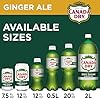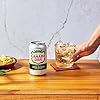History
Davenport and Hennessy described immune imprinting in their work on antibodies against influenza in 1956. They found that vaccination produces antibodies to strains previously encountered, but antibody response to strains experienced subsequently is relatively poor.
The peculiar patterns noted with sera from each age group indicated that influenza antigens experienced early in life produced a continuing specific effect on antibody formation.
That concept was called the original antigenic sin by Dr. Thomas Francis in 1970.
COVID-19 and Immune Imprinting
Putting immune imprinting in the present context, vaccination with the COVID-19 vaccines induces antibodies to the Wuhan Type SARS-CoV-2. That is not surprising since it is based on the spike protein of the Wuhan type.
However, it does not elicit neutralizing antibodies to subsequent variants like Omicron.
That is why highly vaccinated people still get the Omicron.
That is also the conclusion of the study; Immune boosting by B.1.1.529 (Omicron) depends on previous SARS-CoV-2 exposure, which was published in the journal Science in June 2022.
They showed that immunity against previous SARS-CoV-2 variants was effective in the triple vaccinated but not against the Omicron.
B and T cell immunity against previous variants of concern was enhanced in triple vaccinated individuals, but magnitude of T and B cell responses against (Omicron) B.1.1.529 spike protein was reduced.
Interestingly, first-time COVID-19 infection with Omicron produces antibodies against previous variants but not against itself. That explains why people who had Omicron before keep getting reinfected with it.
Previously infection-naïve Health Care Workers who became infected during the (Omicron) B.1.1.529 wave showed enhanced immunity against earlier variants, but reduced neutralizing antibody potency and T cell responses against (Omicron) B.1.1.529 itself.
Importantly, while B1.1.529 (Omicron) infection in triple-vaccinated previously uninfected individuals could indeed boost antibody, T cell and Mononuclear Blood Cell responses against other variants of concern, responses to itself were reduced.
This relatively poor immunogenicity against itself may help to explain why frequent B.1.1.529 (Omicron) reinfections with short time intervals between infections are proving a novel feature in this wave.
This finding is consistent with another research that showed that vaccination with Omicron variants does not improve protection against it.
It also concurs with observations that mRNA vaccination carrying the B.1.1.529 (Omicron) spike sequence (Omicron third-dose after ancestral sequence prime/boosting) offers no protective advantage.

Immune imprinting also explains why immunization is not very effective in the elderly and why many of them get sick with COVID-19 even with the booster shots.
There’s a booster shot with Omicron components, and the FDA is already recommending them.
Don’t settle for the amount of neutralizing antibodies produced (which may sound impressive) that the booster will make.
Instead, ask for the clinical data showing that the booster shot prevented severe COVID-19, hospitalization, and deaths.
Don’t Get Sick!
Knowledge about Covid-19 is rapidly evolving. Stay current by subscribing. Feel free to share and like.
Please consider donating to show your support if you find value in this website.
The other findings in the study that showed that Omicron infection elicits antibodies to previous variants are consistent with another study that I discussed in December 2021; Omicron infections elicit neutralizing antibodies against other variants of concern
Reference:
- Reynolds et al. Immune boosting by B.1.1.529 (Omicron) depends on previous SARS-CoV-2 exposure. SCIENCE. 14 Jun 2022
Image credit: By SiliconProphet – Sabban, Sari (2011) CC BY-SA 4.0, https://commons.wikimedia.org/w/index.php?curid=105231587
© 2018 – 2022 Asclepiades Medicine, L.L.C. All Rights Reserved
DrJesseSantiano.com does not provide medical advice, diagnosis, or treatment
As an Amazon Associate, I earn from qualifying purchases.
Canada Dry Zero Sugar Cherry Gingerale Fruit Splash 12oz, Pack of 12
$5.00 ($0.03 / Ounce) (as of June 4, 2025 05:43 GMT -04:00 - More infoProduct prices and availability are accurate as of the date/time indicated and are subject to change. Any price and availability information displayed on [relevant Amazon Site(s), as applicable] at the time of purchase will apply to the purchase of this product.)Monster Energy Zero Ultra, Sugar Free Energy Drink, 16 Ounce (Pack of 15)
Canada Dry Zero Sugar Ginger Ale Soda, 12 fl oz cans, 12 pack
34% OffDiscover more from Don't Get Sick!
Subscribe to get the latest posts sent to your email.





























